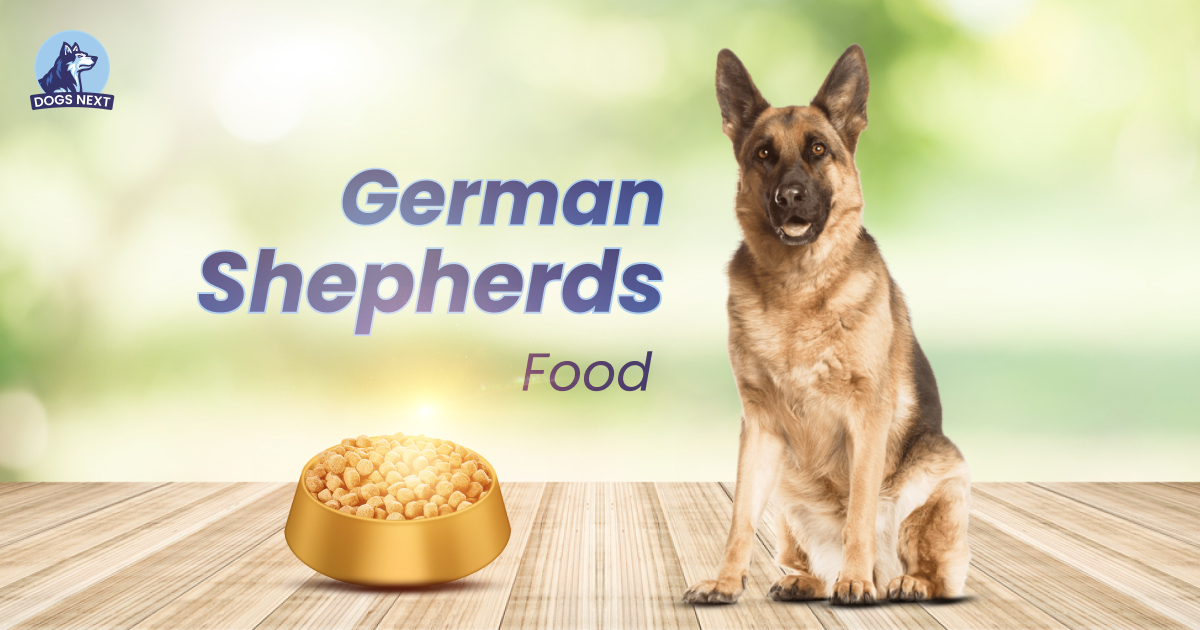German Shepherds are one of the most popular dog breeds in the world, thanks to their intelligence, loyalty, and versatility. However, as with any dog, it’s important to make sure that your German Shepherd is getting the right nutrition to stay healthy and happy.
One of the most important factors to consider when it comes to your German Shepherd’s diet is their food. With so many different types and brands of dog food available, it can be difficult to know which one is the best choice for your furry friend. That’s where this comprehensive guide comes in – we’ll cover everything you need to know about feeding your German Shepherd, from their nutritional needs to the best types of food to consider.
Dog Nutrition for German Shepherds
German Shepherds are a large and active breed that requires a diet that is rich in protein and other essential nutrients. Here are some key nutritional considerations for German Shepherds:
Protein
German Shepherds require a high amount of protein in their diet to support their muscle development and energy needs. Look for dog food that contains at least 25% protein, and consider feeding your dog a diet that is even higher in protein if they are particularly active.
Fat
Fat is another important component of a German Shepherd’s diet, as it provides them with the energy they need to stay active. Look for dog food that contains around 15-20% fat, and choose healthy sources of fat like chicken fat or fish oil.
Carbohydrates
While German Shepherds do require some carbohydrates in their diet, they don’t need as much as some other breeds. Look for dog food that contains high-quality, whole-food sources of carbohydrates like sweet potatoes or brown rice.
Vitamins and Minerals
German Shepherds require a variety of vitamins and minerals to support their overall health and well-being. Look for dog food that contains a balance of essential vitamins and minerals, or consider supplementing your dog’s diet with a high-quality multivitamin.
The Best Dog Food for German Shepherds
When it comes to choosing the best dog food for your German Shepherd, there are a few factors to consider. Here are some tips to keep in mind:
Look for High-Quality Protein
As mentioned earlier, German Shepherds require a diet that is high in protein. Look for dog food that lists high-quality sources of protein as the first few ingredients, such as chicken, beef, or fish.
Avoid Fillers and By-Products
Some dog foods contain fillers like corn or soy, or by-products like chicken feet or beaks. These ingredients provide little nutritional value and can be hard for dogs to digest. Look for dog food that is free from these types of ingredients.
Choose a Trusted Brand
When it comes to your dog’s health, it’s important to choose a brand that you can trust. Look for the dog food from reputable brands that have a proven track record of providing high-quality, nutritious dog food.
Consider Your Dog’s Specific Needs
Finally, remember that every dog is different. If your German Shepherd has any special dietary needs or health concerns, talk to your veterinarian to determine the best diet for them.
By keeping these tips in mind and doing your research, you can find the best dog food to keep your German Shepherd healthy and happy.
Homemade Dog Food Recipes for German Shepherds
While there are many high-quality dog foods on the market, some owners prefer to make their dog food to ensure that their pets are getting the best possible nutrition. If you’re considering making dog food for your German Shepherd, here are a few homemade dog food recipes to consider:
- Chicken and Rice: This simple recipe calls for boneless, skinless chicken breast, brown rice, carrots, and green beans. Simply cook the chicken and rice, and add the vegetables towards the end of cooking time.
- Beef and Sweet Potato: This recipe features ground beef, sweet potatoes, carrots, and green beans. Brown the beef in a large pan, and then add the sweet potatoes and vegetables.
- Salmon and Sweet Potato: For this recipe, you’ll need salmon fillets, sweet potatoes, carrots, and peas. Bake the salmon and sweet potatoes in the oven, and then mix them with the cooked vegetables.
When making your dog food, it’s important to ensure that your dog is getting a balanced and nutritious diet. Be sure to include a variety of protein sources, healthy fats, and vegetables, and talk to your veterinarian to ensure that your homemade dog food is meeting your dog’s nutritional needs.
How to Transition Your German Shepherd to a New Dog Food:
If you’re switching your German Shepherd to a new dog food, it’s important to do so gradually to avoid digestive upset. Here’s how to transition your dog to a new dog food:
- Start by mixing a small amount of the new dog food with your dog’s current food. Begin with a ratio of 25% new food to 75% old food.
- Gradually increase the amount of new food over the course of a week or two, until your dog is eating only the new food.
- Monitor your dog closely during the transition period, and watch for signs of digestive upset like vomiting, diarrhea, or loss of appetite.
- If your dog experiences any digestive upset, slow down the transition process and give their digestive system time to adjust.
By following these steps and taking the time to transition your dog to a new dog food gradually, you can help minimize the risk of digestive upset and ensure that your German Shepherd is getting the best possible nutrition.
The Pros and Cons of Raw Food Diets for German Shepherds
A raw food diet for dogs typically consists of raw meat, bones, and vegetables. While some owners swear by this type of diet, there are both pros and cons to consider before deciding if a raw food diet is right for your German Shepherd.
Pros:
- Can lead to a healthier coat and skin
- May reduce allergy symptoms
- May lead to smaller, firmer stools
- Provides a more natural diet for dogs
Cons:
- Risk of bacterial contamination
- Can be expensive and time-consuming to prepare
- May not provide a balanced diet without proper supplementation
- Can be difficult to ensure your dog is getting all of the necessary nutrients
If you’re considering a raw food diet for your German Shepherd, it’s important to consult with your veterinarian first to ensure that it’s the right choice for your dog’s individual needs.
How to Choose a High-Quality Dog Food
Choosing the right dog food for your German Shepherd can be overwhelming, as there are so many options on the market. Here are some tips for choosing high-quality dog food:
- Look for a dog food that is AAFCO (Association of American Feed Control Officials) certified, which means it meets certain nutritional standards.
- Choose a dog food that lists a high-quality protein source (such as chicken, beef, or fish) as the first ingredient.
- Avoid dog foods that contain fillers like corn or soy.
- Consider your dog’s age and activity level when choosing dog food.
- Talk to your veterinarian for recommendations on the best dog food for your German Shepherd’s individual needs.
By taking the time to research and choose a high-quality dog food for your German Shepherd, you can help ensure that your dog is getting the best possible nutrition.
Frequently Asked Questions
Q: What food for German Shepherd puppy?
Ans: German Shepherd puppies require a diet that is rich in high-quality protein and fat to support their growth and development. Look for a puppy-specific dog food that meets AAFCO standards and lists a high-quality protein source as the first ingredient.
Q: Why do German Shepherds need special food?
Ans: German Shepherds have specific nutritional requirements that vary based on factors such as age, activity level, and health conditions. High-quality, breed-specific dog food can help ensure that German Shepherds get the nutrients they need to maintain a healthy weight, promote strong bones and joints, and support their overall health and well-being.
Q: Do German Shepherds eat bananas?
Ans: Yes, German Shepherds can eat bananas as an occasional treat. Bananas are a good source of fiber, potassium, and vitamins B6 and C, but should be fed in moderation as they are also high in sugar.
Conclusion
In conclusion, choosing the right food for your German Shepherd is crucial to their overall health and well-being. Whether you choose to go with a raw food diet, homemade dog food, or high-quality commercial dog food, it’s important to make sure that your dog is getting all of the necessary nutrients they need to thrive.
Always consult with your veterinarian to ensure that your German Shepherd’s diet is tailored to their individual needs. With the right diet and nutrition, your German Shepherd can lead a happy, healthy life. And remember, when it comes to German Shepherd food, always choose the best for your furry friend.

I’m David, an expert contributor and writer, with two furry friends of my own, I know the challenges of raising and caring for dogs. From training to nutrition and health, my goal is to provide valuable insights and advice to help create strong bonds and happy, healthy lives. Find me in Twitter.




